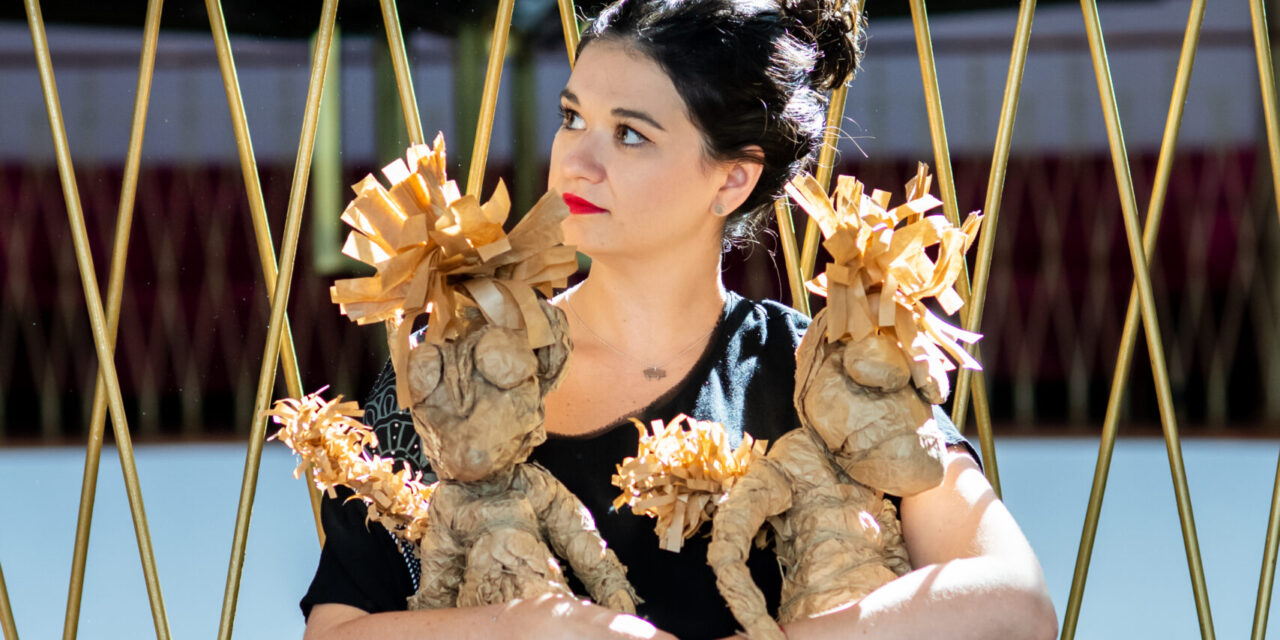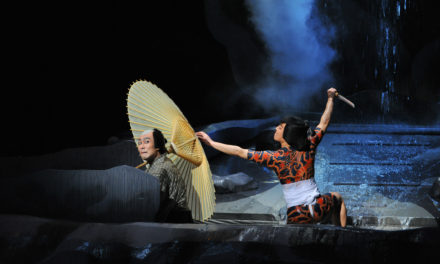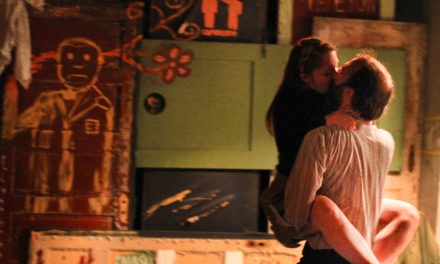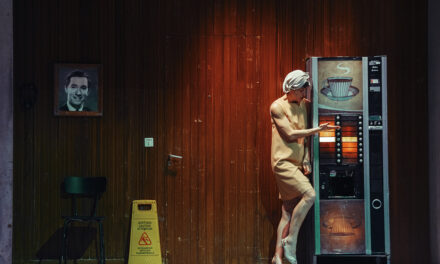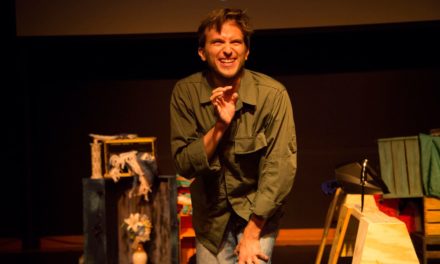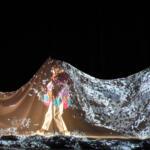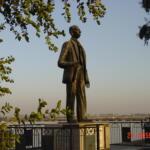Theatre institutions or more broadly art institutions have always been the frontline workers in the area of managing social crises or revolutions. As first responders, metaphorically speaking, theatres provide spaces and venues for magnified representations of what society faces as a challenge or risk. Theatrical stages, therefore, possess the human vulnerability as well as technical equipment to deal with social emotions, to make sense of the chaotic logic of public life. Particularly in this context, the very concept of “technical equipment” amounts to much more than merely fancy sets or smart lighting. It involves the institution in its entirety, all units and departments, and those, in turn, function as immediate correlates of forces shaping local and global cultures. Seen from this perspective, theatre turns into a complex organism closely related not only to cultural or social ecologies but also to economic, political and institutional fields. This complex habitus of theatre, a play of Pierre Bourdieu’s forces and powers, is reflected in the organizational and artistic condition of the theatrical institution.
Some of these problems were tackled during the “Theatre as a Social Institution” seminar organized at the Twelfth Between.Pomiędzy Festival in Sopot/Gdańsk, Poland. Between.Pomiędzy is an international theatre and literature festival which mixes artistic and academic approaches to contemporary culture by organizing both artistic, critical and academic events. This year, the seminar collected theatre practitioners from the United Kingdom (Verónica Rodríguez), Germany (Michael Raab), the Czech Republic (Marta Ljubková) and Poland (Magdalena Szuster) who had been asked to address a number of issues related to recent evolutions in the structure of theatrical production and its artistic as well as non-artistic mission. Introducing the seminar themes, the organizer, Michał Lachman stressed the fact that theatres had increasingly been expected to expand their scope from offering merely high art experience to engaging with social and political life both at a domestic and global levels. Activating local communities as well as ruminating on global politics turns theatres into equivalents of public educational institutions. As such, theatre’s mission is not just about sending out a message to be taken and digested by a passive audience, it is about generating an active response of its patrons and learning from it by feeding it back into the artistic and productive system. The public role of the theatre responds partly to the demand of some of its audiences who expect the institution to develop a social and cultural remit which goes beyond presenting actors on stage and occupies itself with engaging a wider public through a series of open workshops, creative projects and education programs. These tasks which reconnect theatres with the world on the outside of the institution also drive significant changes within it. One could speak here about a new “division of labor”[1] in which the leading effort of the strictly artistic crew is shifted towards the entire creative team comprising instructors and tutors.
Naturally, the context of the pandemic has influenced the operation and planning of theatrical institutions, pushing them towards searching for new ways of reconnecting with audiences as well as towards rethinking the role and format of play-text as a basic component of theatre. For Marta Ljubková, Head Dramaturgist of the National Theatre in Prague, recently theatre has been operating in completely new environments for which both the audience and the artists need to discover unexplored methods of communication. It is a new “dramaturgical situation” redefining, in Ljubková’s words, the very nature of theatrical encounter and forcing theatre practitioners as well as dramaturgs to look for an alternative “concept of sharing.” It needs to be stressed that “new formats” for theatre presence and operation had been explored before, and the pandemic restrictions had made some of them only more prominent and significant, leading perhaps to a major reformulation of the philosophy of theatre as a center for cultural activity. Introducing the topic of dramaturgy as a vehicle for revolution in contemporary theatre, Mary Luckhurst points out that especially in the post-war period the function of the literary manager had grown in importance, becoming not only the “director’s most important theoretical collaborator” but also a figure responsible for providing a “bridging mechanism to the audience”.[2] The evolution towards a more three-dimensional, socially-oriented institution started much before the recent challenges to theatrical production and management. Ljubková stresses the need for “broader responsibility” and for education which theatre facilitators undertake in order to do more than simply deliver the text to the audience.
This opinion seamlessly ties in with the perspective of another participant to the seminar, Magdalena Szuster, who is affiliated with Music Theatre in Łódź and runs a number of education networking programs within the broad field of art education. For this area, still very much a “fuzzy” term due to its multiple specializations and models, the key objective lies with the mission of “audience development,” which as Szuster puts it often means reaching out to “underprivileged groups,” using theatre or art as “tools for social inclusion.” This opinion echoes many other voices from the field which is occupied by theatre facilitators often playing the role of activists. For Kayza Rose, associated with Duckie – a collective of performers from London, multiple interventions happening on the borderline between institutional theatre, performance and activism can function as “instruments for social and political change” as well as “strategies of survival and community building”.[3] Yamin Choudury, Artistic Director of Hackney Empire, theatre situated in London’s borough of Hackney, local theatrical venues have the power to “offer a point of emergence for artists” and hold responsibility for “taking away barriers”.[4] As such, theatre turns into an institution which is both responsible for producing plays and performance but also for reaching out to those who may not connect with theatre out of their own accord in order to listen to their stories and help make them public. The community building function and facilitating local communities in the effort of nurturing their stories, talents and confidence appeared as important topics in the contributions of all of the speakers at the Sopot seminar.
Verónica Rodríguez, teaching fellow at the University of Reading and commissioned playwright at the Royal Court, talked about an interesting example of cooperation between a leading London theatre and local community groups. Referring to the Royal Court’s “Listen Local” participation program, Rodríguez observed that its primary objective was to offer “real opportunities to people who have no access to theatre” and to “facilitate connections.” The program (as part of 2020 London borough of Culture) helped members of the community to work on their play script and then have it professionally produced at the Royal Court. As such, the project made a real “contribution to the society through theatre,” but more importantly, as Rodríguez stressed, it made theatre “communities come together.”
Furthermore, in the light of the new and changing roles and hierarchies within the theatre the participants to the program were allowed to be “embedded” with the institution, breaking a number of barriers that usually make art accessible only in limited, precisely defined ways. Such an “interweaving with the institution,” as Rodríguez puts it, grants a different status, value and recognition to the voices of the general public. It is worth emphasizing that specific projects which tackle the issue of social or class inequality, evidenced among others by unequal access to art and culture, have become a pivotal element of modern theatre’s agenda. On the one hand, they help “understand how society is structured and organized,” on the other, they identify areas of exclusion and point to permanent inequalities.[5]
A somehow polemical view to the current developments within the theatre industry was presented by Michael Raab, a long-time dramaturg with a number of leading German theatres as well as an experienced translator and theatre commentator. His view set the polarities which have been discussed so far with distinct sharpness. Assessing the recent evolution of theatrical institution, Raab pointed somewhat regrettingly to the fact that theatres had increasingly been defining their roles through educational objectives, seeing their function as a “lubricant for social change” and “motor for integration.” An attempt to salvage themselves from that preoccupation is usually, in Raab’s view, decried as “elitist.” Theatres looking for “non-artistic justifications” would in this case be connected with the strong need for offering moral instruction, turning theatre-makers into self-proclaimed “moral avant-garde.” Michael Raab’s contribution helped define two modes of theatrical activity; the one, currently in operation, views theatre as the institution firmly rooted in the social habitus of its audience and an agent claiming the right to have a substantial share in the overall run of its patrons’ daily affairs; the second one is a more traditional concept of theatre which voices opinions exclusively from the stage and essentially using dramatic texts as the basis for public dialogue.
The Sopot seminar drew attention precisely to the gradual changes within the theatrical institution which make it more responsive towards non-artistic demands of the public. It seems that there is no settling of the dilemma between the art theatre and theatre as the agent of social change which Raab has outlined. The two models of operation are not alternatives from which one could deliberately choose. The difference between the former and the latter concept of theatrical institution is the product of its time, the effect of evolution visible both within artistic circles and social environments. It is, in other words, as the Sopot seminar suggests, the result of – in lieu of a better formulation – historical necessity.
[1] Mary Luckhurst, Dramaturgy: A revolution in Theatre, (Cambridge, New York: Cambridge University Press, 2005), p. 205.
[2] Mary Luckhurst, Dramaturgy…, p. 9.
[3] “From the producer’s perspective: Kayza Rose”, Studies in Theatre and Performance, Vol. 40, No. 3 (2020), 275–279, p. 275.
[4] “From the producer’s perspective: Yamin Choudury”, Studies in Theatre and Performance, Vol. 40, No. 3 (2020), 328–333, p. 330, 332.
[5] “Class and the problem of inequality in theatre”, Studies in Theatre and Performance, Vol. 40, No. 3 (2020), 242-250, p. 243.
This post was written by the author in their personal capacity.The opinions expressed in this article are the author’s own and do not reflect the view of The Theatre Times, their staff or collaborators.
This post was written by Michał Lachman.
The views expressed here belong to the author and do not necessarily reflect our views and opinions.

